CNS 2020 Online Symposium Schedule of Events
Day 1 – Monday August 3rd
Webinar 1 (9:00 – 10:15am MDT)
Welcome to CNS 2020 Online
Ellen Dierenfeld, CNS President
Nutritional Ecology of Honeybees in a Changing Landscape
Dr. Juliana Rangel-Posada, Texas A&M University
Sponsored by EnviroFlight
Webinar 2 (10:15 – 11:15am MDT)
New Opportunities from DNA-based Dietary Data in Animal Nutrition and Foraging Ecology
Dr. Tyler Kartzinel, Brown University
Sponsored by Mazuri Exotic Animal Nutrition
Day 2 – Tuesday August 4th
Webinar 3 (3:00PM – 4:00PM MDT)
A Multidisciplinary Approach for Assessing Mammals’ Vulnerability to Environmental Change
Dr. Seth Newsome, University of New Mexico
Sponsored by Central Nebraska Packing
Webinar 4 (4:00 – 5:00PM MDT)
Methods in Comparative Nutrition Science; Strengths and Pitfalls
A Roundtable Discussion, starting with brief introductions by scientists to several widely used “cutting edge” techniques that may be of interest to students and other researchers. Followed by a moderated discussion on the strengths and weaknesses of the different approaches, and the types of situations where particular approaches will be useful and problematical.
Sponsored by Zootrition
Day 3 – Wednesday August 5th
Webinar 5 (8:00 – 9:00AM MDT)
Toward Integrating the Gut Microbiome into Models of Host Nutrition and Energetics
Dr. Katherine Amato, Northwestern University
Sponsored by Star Labs
Webinar 6 (9:00 – 11:30AM MDT)
Live Moderated Q & A “Happy Hours” Poster Session – See the Posters Here
Sponsored by Nestlé PURINA
Speakers

Dr. Katherine Amato, Northwestern University
Dr. Amato is a biological anthropologist at Northwestern University studying the influence of gut microbes on host ecology and evolution. Her research examines how changes in the gut microbiota impact host nutrition, energetics, and health. She uses non-human primates as models for studying host-gut microbe interactions in selective environments and for providing comparative insight into the evolution of the human gut microbiota. Her main foci are understanding how the gut microbiome may buffer hosts during periods of nutritional stress and how the gut microbiome programs normal intra-specific differences in host metabolism. In this realm, she is also interested in global variation in the human gut microbiome and its implications for local human adaptation. Amato earned her B.A. (Biology) at Dartmouth College and her Ph.D. (Ecology, Evolution, and Conservation Biology) at the University of Illinois at Urbana-Champaign.

Dr. Tyler Kartzinel, Brown University
Dr. Kartzinel’s lab conducts research at the interface of conservation biology and molecular ecology. They combine ecological field experiments with molecular laboratory approaches to better understand where species live, who they interact with, and what health or conservation challenges they may face. A particular area of interest is the use of cutting-edge genetic tools to elucidate complex food webs and host-microbiome interactions. Ongoing studies focus on the nutritional ecology of diverse species, including endangered wildlife, free-ranging livestock, model organisms, and humans.
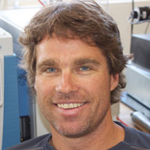
Dr. Seth Newsome, University of New Mexico
Seth Newsome’s research interests include animal ecology, eco-physiology, and historical ecology. He is the Associate Director of the University of New Mexico (UNM) Center for Stable Isotopes and an Associate Professor in the Biology Department. He received his B.A. from Dartmouth College in 1999, a Ph.D. (primary advisor: Paul Koch) from the University of California–Santa Cruz in 2005, and held two postdoctoral positions before arriving to UNM: the first with Marilyn Fogel at the Carnegie Institution for Science and the second with Carlos Martinez del Rio and Dave Williams at the University of Wyoming. Besides science, he enjoys mountain biking, rafting, and fly fishing.
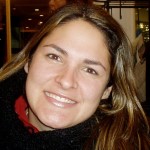
Dr. Juliana Rangel-Posada, Texas A&M University
Born in Colombia, South America, in 2004 Juliana obtained a B.S. in Ecology, Behavior, and Evolution from the University of California, San Diego. In 2010 she obtained a Ph. D. in Neurobiology and Behavior from Cornell University in Ithaca, NY, working with Dr. Tom Seeley. In 2010-2013 she was a NSF Postdoctoral Research Fellow working with Dr. David Tarpy at North Carolina State University. In January 2013, Juliana became Assistant Professor of Apiculture in the Department of Entomology at Texas A&M University (TAMU) in College Station, TX. She became Associate Professor with tenure in 2018. Her research program focuses on the biological and environmental factors that affect the reproductive quality of honey bee queens and drones, the genetics of feral honey bees, and the quality and diversity of honey bee nutrition. She is an active member of the Texas Beekeepers Association and has spoken to dozens of beekeeping associations across the USA. She teaches the courses Honey Bee Biology, Introduction to Beekeeping, and Professional Grant Writing. Since 2014 she has been the coach of TAMU’s undergraduate and graduate teams of the Linnaean Games at the branch and national games of the Entomological Society of America (ESA), earning first and second place nationally three years in a row. She is the past elected chair of the ESA’s Diversity and Inclusion Committee, and currently serves as chair of Entomology’s Graduate Student Forum Committee, the Graduate Admissions Committee, and is chair of the Graduate Student Recruitment Travel Grant. She was 2014 President of the American Association of Professional Apiculturists.
Who Should Attend?
Laboratory and field scientists from various disciplines with interests in comparative nutrition
Xtalks Partners

![]()
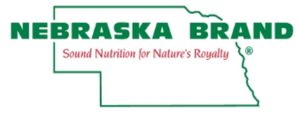
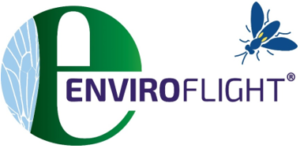
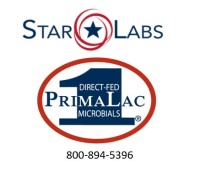
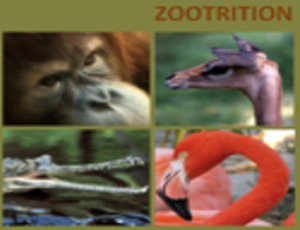
You Must Login To Register for this Free Webinar
Already have an account? LOGIN HERE. If you don’t have an account you need to create a free account.
Create Account
